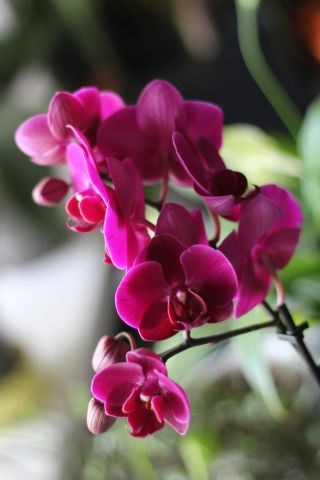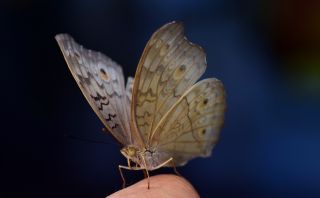Our world is full of different sorts of people, and more awareness and acceptance of these distinctions allows all of us to live in better harmony. There has been familiarity about introvert and extrovert styles for many decades, but knowledge has been increasing in recent years about additional more nuanced distinctions, including sensitivity that exists for both the neurotypical and neurodiverse individuals.
Understanding and fully accepting sensitivity can be difficult not only for loved ones but sometimes even for the sensitive person themselves. In fact, many sensitive people have sometimes felt ashamed, diminished or less than their contemporaries who might seem more energetic, socially engaging, or energized at all times. Instead of the old-fashioned refrain of “you’re too sensitive,” shifting the conversation to celebrate the strength of sensitivity is much more productive. Several metaphors can assist in opening up this conversation for increased mindfulness and support.

Source: Viktor Talashuk/Unsplash
Sunburns
Getting a sunburn can be temporarily painful and often requires a bit more of a gentle approach to that shoulder, back, or feet that have been burned. A light breeze might feel delightful for someone without a sunburn, but that same breeze could actually elicit prickly pain to someone who has a sunburn. A firm handshake or hug might be reassuring to one person but be literally agonizing to another. Joyful music might lead one person to jump up to dance and another to slink away towards a quiet corner. Similarly, a sensitive individual experiences the world in a different way that may be difficult for someone without the same sensitivities to even imagine. By imagining a sunburn on the skin, we can increase our awareness of the invisible but highly significant sensitivity impact.

Source: Clker-Free-Vector-Images/Pixabay
Tastebuds
Children tend to reject more flavorful foods more than adults in general, but even adults have a wide variety of tolerances. Some people love spicy things, others can’t tolerate anything fiery. This difference is not anyone’s fault but is believed to relate to a complex combination of genetics, taste receptor changes, psychology, and culture. Everyone’s sensory experience is different. Just as taste is a bundle of different sensations moderated by the cells on our tongues, sensitive people are wired differently; this is biology, not choice.

Source: Marina Yalanska/Unsplash
Beautiful Orchids
We have an awareness that different plants might need different care. Some enjoy full sun, others need more shade. Frequent watering is required by some more delicate species, but others can survive drought conditions quite well. Orchids are considered beautifully exquisite flowers that are highly coveted by many, but they are also one of those plants that require gentle, careful care to bloom into their full potential. Daisies, in contrast, are also lovely and cheerful but can sprout up on the side of the road despite the pollution, only periodic tending and trampling animals. Sensitive individuals can be thought of like the orchids of the human world: wonderful, complex, interesting and delicate in many ways.

Source: Mohamed_hassan/Pixabay
Wringing Out a Sponge
Sensitive individuals tend to absorb so much of the sights, sounds and energy of the environment around them. They will become much more easily waterlogged than someone with more of a Teflon exterior. Just as a sponge that has water trapped in the bubble-like spaces and fibers needs it be wrung out periodically, sensitive humans need breaks when they are at or nearing their max rate of absorption. Each person has a different capacity for input, but most individuals have signals that let them know when they have maximized their input for that hour or that day. Allowing oneself or someone whom you care about to have some “drying out” time is not only compassionate and kind but also allows more pacing and effectiveness in engagement. The wringing out process varies by individual, whether that be a 10-minute break outside or a 10-hour separation of space. Staying aware of if, when and how of this need is critical for those who are sensitive.

Source: ulleo/Pixabay
Holding a Butterfly
If a butterfly were to land on your hand, you likely would slow, pause, enjoy the moment. There is awareness that this moment is likely fleeting and requires a gentle, compassionate approach. You might mindfully observe the butterfly body, the colors of the wing, the shape of the antennae. You would likely instinctively know that quick movements, shrieking, or grabbing would result in that butterfly flying away. Similarly, approaching oneself or someone whom you care about in an angry, demanding, aggressive way does not work to see the splendid beauty of that person. Instead, approaching patiently, open-heartedly, respectfully works to allow more of the fuller self to be seen. The moments of fuller exposure may be brief, especially at first, but this allows steps towards acceptance in a safe and secure way to be known.

Source: Aedrian Salazar/Unsplash
Hero Scenarios
Dystopian stories have become more popular over recent years. Although many of these hypothetical world destruction scenarios appear pretty far-fetched, the depictions of the people coping with the disaster are often interesting to watch. There are always some characters in the story who deal well with the crises and seem to rise up as smart, driven leaders; others are impulsive, aggressive and make decisions leading them to their early demise. But the good stories also have the clever, quiet heroes who are brave, admirable and pivotal to survival. If there were a world-ending apocalypse, I would guess that the strengths of the sensitive people would likely be highly advantageous. Sensitive individuals possess key skills, such as being keenly sensitive to changes in the environment or knowing how to protect themselves in times of overwhelm. People who have had to be persistent in the pursuit of stability and to continually problem-solve overpowering life hurdles learn to be creative and resourceful. Although there is no evidence of a zombie apocalypse looming, our world is a better place because of the sensitive people who bring forth their special skills in all sorts of situations. They deserve to be seen, admired, and revered.

